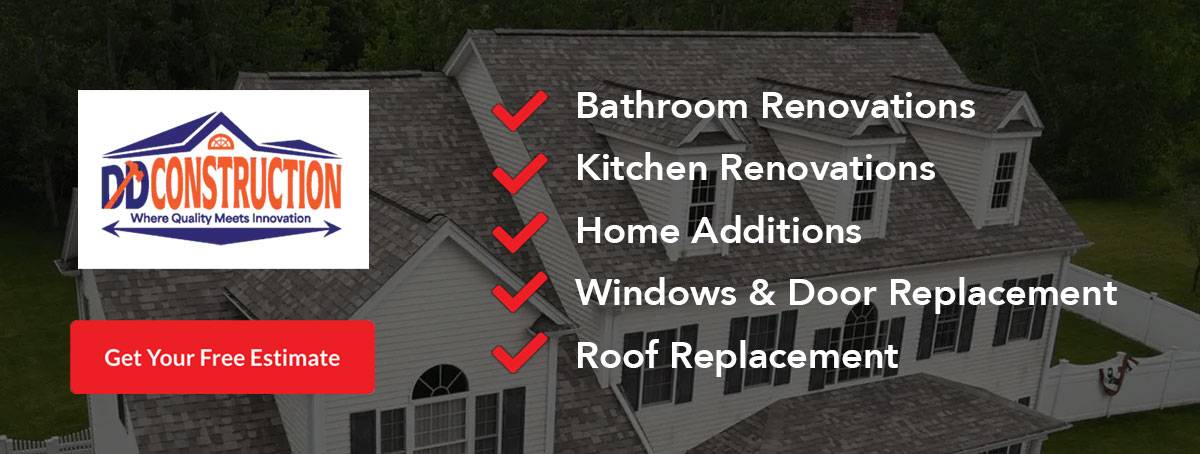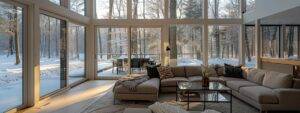The process of replacing windows in Massachusetts can be both exciting and daunting for homeowners. With rising energy costs and the promise of enhanced curb appeal and increased property value, many Massachusetts homeowners are considering window replacement as a key home improvement project. Many homeowners even choose to consult with dd construction for expert guidance during their renovation. However, navigating the window replacement process—from the initial steps of assessment to selecting the right contractor—requires clear understanding and thorough planning. Homeowners must know what to expect, prepare adequately before installation begins, and understand the trade-offs between various window materials and styles. This article provides an in-depth look at the entire window replacement process in Massachusetts, exploring detailed steps, professional assessments, installation concerns, energy efficiency considerations, warranty specifics, costs, financing options, and guidelines on choosing the right contractor.
The decision to invest in new windows is often driven by the desire to lower heating and cooling costs, reduce greenhouse gas emissions through improved energy efficiency, and update a property’s look. In Massachusetts, weather extremes and strict building codes heighten the stakes of choosing the ideal window design and materials. Homeowners should be informed and plan ahead, understanding how every component—from selecting replacement window brands such as Marvin or Andersen to the benefits of casement, awning, or bay window designs—affects both performance and aesthetics. This comprehensive guide serves as a roadmap, helping homeowners transition smoothly from the decision to replace windows to enjoying improved energy performance and overall satisfaction from expert installation by firms such as DD Construction.
As we discuss each phase—from initial assessments and transition to installation—the detailed explanations, supported by examples, will help demystify this complex subject. With a focus on quality workmanship, environmentally responsible materials, and adherence to local building codes, Massachusetts homeowners can confidently embark on their window replacement projects.
What Are the First Steps in the Window Replacement Process in Massachusetts?
The first steps in the window replacement process in Massachusetts involve a thorough evaluation by professionals along with crucial preparations by homeowners. Initially, a certified inspector or contractor assesses the current condition of the windows and the overall home envelope. This inspection determines damage, energy inefficiency, and structural issues that may affect new window installation. Experts use advanced diagnostic tools such as thermal imaging cameras to identify drafts, leaks, or insulation deficiencies. This evaluation guides the selection of new windows while providing a baseline for estimating potential energy savings.
How Do Professionals Assess Your Home for Window Replacement?
Professionals begin by taking detailed measurements of the existing window frames. They evaluate the condition of surrounding structures, including wall framing, insulation, and weatherstripping, to ensure the installation will create a superior seal. The assessment may also review historical building conditions related to Massachusetts construction codes to ensure compliance. In some cases, the contractor may recommend additional improvements such as upgrading insulation or addressing moisture issues that could damage the new windows over time.
During this phase, professionals also assess the home’s aesthetics and overall design. They consider architectural style, the building’s orientation relative to sunlight, and the homeowner’s preferences regarding window styles. These factors inform recommendations for replacements that enhance both efficiency and visual appeal. Often, experts provide a preliminary report with detailed measurements, repair recommendations, and an initial cost estimate.
What Should Homeowners Prepare Before Installation Begins?
Before installation, homeowners should gather important documentation and clear the work area. This includes reviewing existing window warranties and collecting architectural drawings or blueprints if available. Protective measures, such as covering furniture and flooring with sheeting, are critical. Homeowners should also plan for temporary disruptions by arranging care for pets or children during installation.
Obtaining the proper permits and ensuring proposed changes comply with local building codes is a vital step. Massachusetts municipalities may require permits for window replacements, particularly when significant design or structural changes are involved. Confirming appointment dates and agreeing on a detailed project timeline with the contractor—clarifying any concerns regarding noise, dust, or daily disruptions—is also essential. Arranging financing or clarifying payment terms in advance can help avoid unexpected delays.
Which Window Styles and Materials Are Best for Massachusetts Homes?
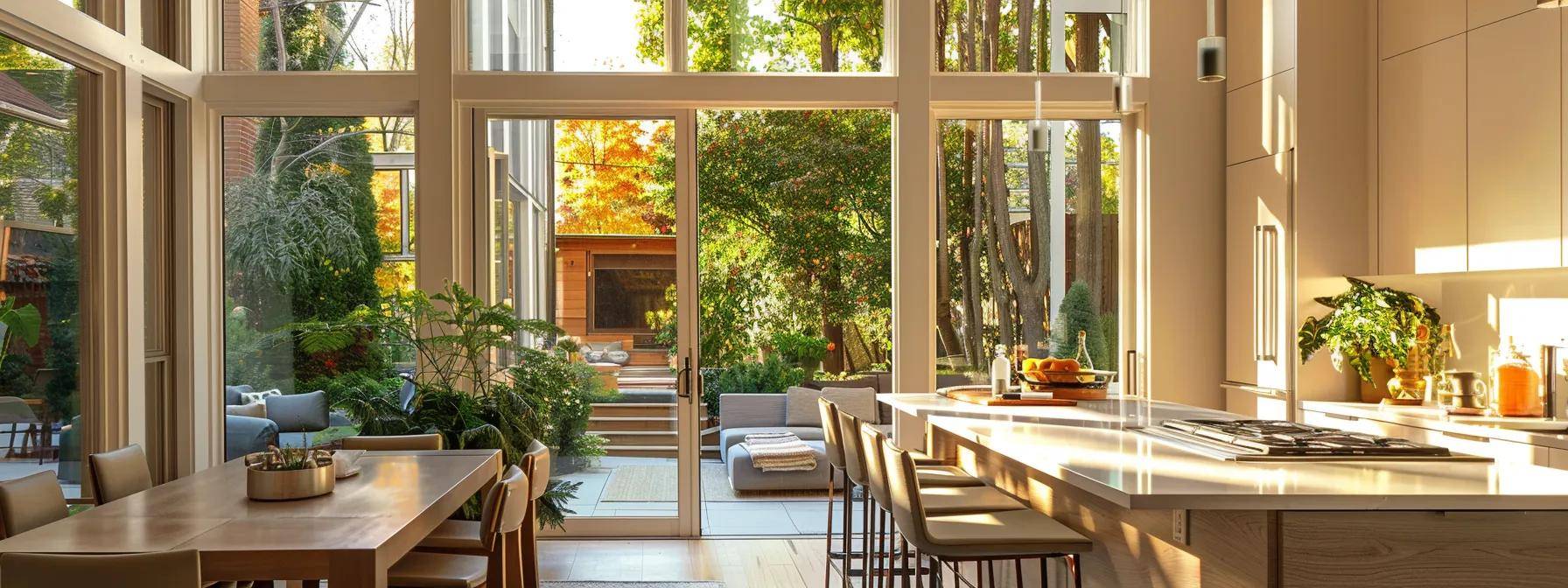
The selection of window styles and materials is crucial to the overall performance of replacement windows. Massachusetts homeowners must balance aesthetics, energy efficiency, durability, and code requirements when choosing windows that complement their homes and perform well in local weather conditions.
What Are the Most Popular Window Styles in Massachusetts?
Massachusetts homeowners commonly opt for window styles that maximize natural light, improve ventilation, and complement both historical and modern designs. The most popular styles include double-hung, casement, awning, and picture windows.
- Double-Hung Windows – Versatile and Traditional: These windows have two sashes that move vertically, offering options for ventilation and ease of cleaning. They are favored for their classic look and are effective for preserving the architecture of older homes.
- Casement Windows – Energy-Efficient and Air-Tight: Hinged on the side and opening outward, these windows offer superior airtight seals. Their operation provides better energy efficiency and a modern appearance, making them popular in both new and updated historic homes.
- Awning Windows – Rain-Resistant and Ventilative: Hinged at the top, awning windows open outward even during rainfall. Homeowners appreciate their functional design and ease of integration with various architectural styles.
- Bay or Bow Windows – Expansive and Scenic: These multi-panel windows extend outward, creating panoramic views and added interior space. They are increasingly popular for enhancing living areas and boosting curb appeal.
- Picture Windows – Unobstructed Views: Prioritizing expansive views and natural light, picture windows have a fixed design that provides high energy efficiency. They are ideal for showcasing scenic landscapes.
- Sliding Windows – Smooth Operation and Minimalism: With a contemporary design and horizontal glide, sliding windows are a practical, stylish choice in rooms with limited space.
- Fixed Windows – Maximized Aesthetics and Insulation: Fixed windows do not open, ensuring an airtight seal that significantly reduces air leakage. Often used with operable windows, they boost energy efficiency without compromising natural light.
How Do Window Materials Affect Energy Efficiency and Durability?
Window frames and sashes come in materials such as vinyl, wood, fiberglass, and aluminum, each with unique benefits regarding energy efficiency, durability, aesthetics, and maintenance. Vinyl windows are popular for their affordability, low maintenance, and excellent thermal insulation. Wood offers superior aesthetics and is ideal for custom finishes, though it requires periodic upkeep. Fiberglass windows are highly durable and resistant to temperature fluctuations, while aluminum—though lightweight and strong—is less energy efficient unless thermally broken. Each material’s performance is often quantified by its U-factor and resistance to water and air infiltration; Energy Star-certified windows typically achieve a U-factor below 0.30, significantly reducing heating and cooling costs in colder climates.
Which Window Brands Are Recommended for Massachusetts Weather?
Top brands known for durability and energy efficiency in harsh New England weather include Marvin, Andersen, and Pella. These brands offer cutting-edge replacement window options that incorporate features such as low-emissivity (Low-E) coatings, argon gas fills, and multiple insulated glass layers. These attributes help reduce heat loss during winter and minimize solar gain in summer, thus enhancing comfort and lowering energy consumption. Contractors often recommend products that include extended warranties and high-performance ratings to handle freeze-thaw cycles and local humidity variations.
To summarize, Massachusetts homeowners must weigh style compatibility, energy performance, and materials when selecting replacement windows. Detailed specifications, like U-factor and Solar Heat Gain Coefficient (SHGC), are critical for achieving enhanced energy efficiency and comfort. By researching reputable manufacturers and balancing market trends with performance data, homeowners can choose windows that elevate their home’s appearance while promoting long-term energy savings.
How Is the Professional Window Installation Process Carried Out in Massachusetts?
The professional window installation process in Massachusetts is systematic and ensures that each window is securely fitted, performs optimally, and complies with local building codes. Certified installers follow key steps to guarantee successful replacement while maintaining the home’s structural integrity. This process is designed to minimize disruption and maximize energy efficiency and durability.
What Are the Key Steps in a Certified Installer’s Window Replacement?
Certified installers begin with careful removal of the old windows without damaging surrounding structures. Specialized tools are used to preserve frames and trim, which are essential for insulation.
- Site Preparation – Mitigating Damage and Ensuring Safety: The area is protected with drop cloths, and obstacles are removed to create a safe work environment and prevent debris from entering the home.
- Removal of Old Windows – Precision and Care: Old window units are removed using manual and mechanized tools that minimize vibrations and structural impacts. Technicians assess the rough opening for any damage that needs repair before installing new windows.
- Inspection and Repair of the Opening – Creating a Sound Base: Once removed, contractors inspect the rough opening and surrounding frame for rot, moisture damage, or structural deficiencies and address issues with re-caulking or added insulation to prevent future energy loss.
- Installation of the New Window – Accurate Alignment and Sealing: The new window is positioned, leveled, and securely fastened using high-quality sealants and insulation materials, such as spray foam, to create a continuous thermal barrier.
- Finishing Touches – Restoring Aesthetic and Functionality: After installation, interior trim is applied and exterior cladding is secured. A final quality check ensures the window operates smoothly, is sealed against air leaks, and meets manufacturer and local code standards.
This methodical approach ensures each replacement window enhances home appearance while improving energy performance and durability. Adhering to these detailed steps minimizes maintenance issues and improves indoor comfort.
How Do Massachusetts Building Codes Impact Window Installation?
In Massachusetts, window installations must conform to specific building codes that guarantee safety, energy efficiency, and resilience against extreme weather. These codes set minimum energy performance standards (including maximum U-factors and SHGC values) and installation practices to prevent moisture intrusion and heat loss. Certified installers update their methods regularly to reflect changes in state regulations. Compliance not only prevents legal issues but also qualifies properties for local incentives and rebates, such as those offered through Mass Save programs. Contractors verify that all materials and techniques are approved by local inspectors and that modifications to the home’s thermal envelope improve overall performance. The requirement for permits underscores the state’s commitment to ensuring that building modifications enhance community safety and energy sustainability.
What Should Homeowners Expect During the Installation Day?
On installation day, homeowners should expect a well-coordinated process executed by experienced professionals. The work typically starts early, with all necessary tools and materials on site. Homeowners can expect clear communication from the crew, who explain the process and answer any last-minute questions. Temporary inconveniences—such as some noise or dust—are managed to minimize disruption. Contractors work efficiently within a set timeframe, and upon completion, perform a walkthrough to demonstrate window functionality, discuss cleaning and maintenance, and remove all project remnants. A formal sign-off confirms that the installation meets expected standards and state codes, providing homeowners with reassurance and satisfaction.
How Does Window Replacement Improve Energy Efficiency in Massachusetts Homes?
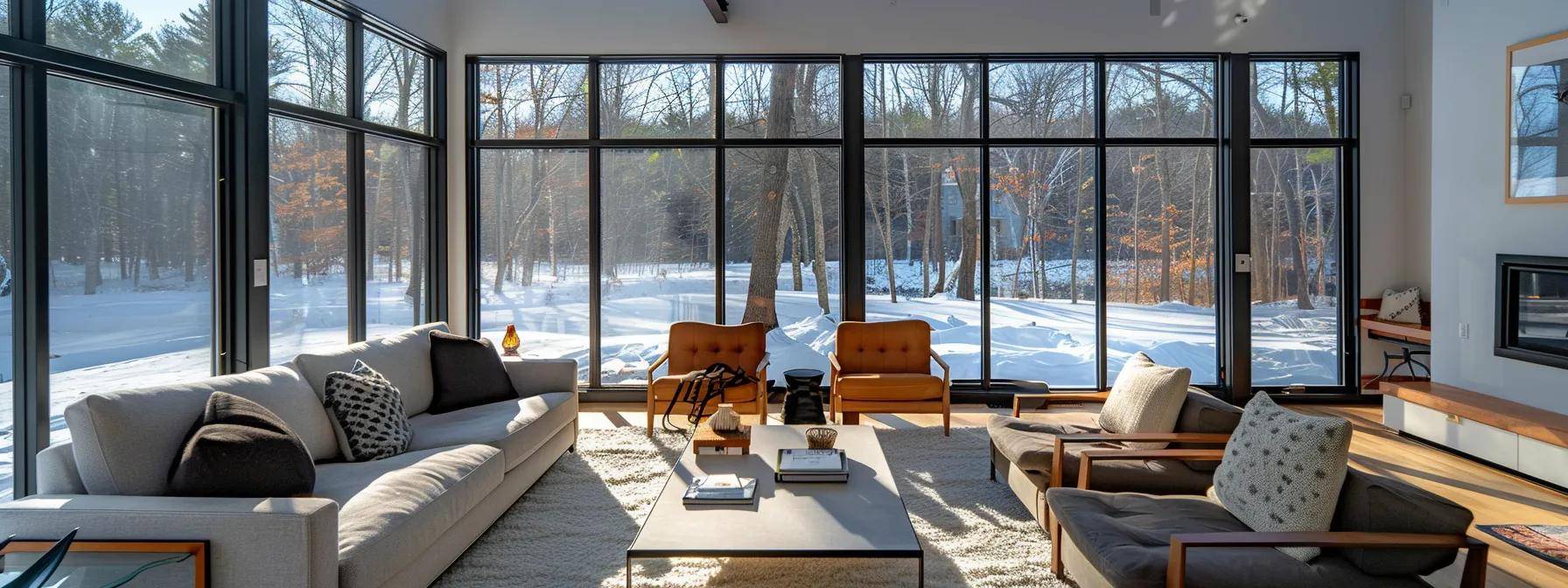
Window replacement significantly impacts a home’s energy efficiency, especially in Massachusetts with its cold winters and humid summers. Modern windows can dramatically improve insulation, reduce drafts, and enhance overall comfort by maintaining steady interior temperatures—all while helping to lower utility bills and reduce greenhouse gas emissions.
What Energy-Saving Features Should You Look for in Replacement Windows?
The energy-saving features of replacement windows are quantified by specifications such as U-factor, Solar Heat Gain Coefficient (SHGC), and air leakage ratings. Homeowners should consider windows that are Energy Star-certified, indicating they meet strict energy efficiency requirements. Features to look for include:
- Low-Emissivity (Low-E) Coatings – Reduced Heat Transfer: These coatings reflect infrared light, keeping heat inside during winter and outside during summer, thus reducing the load on heating and cooling systems.
- Double or Triple Glazing – Superior Insulation: Multiple layers of glass with inert gas fills (e.g., argon or krypton) reduce heat conduction and better maintain indoor temperatures.
- Thermally Broken Frames – Enhanced Performance: Frames with an insulating barrier between the exterior and interior prevent thermal bridging, reducing heat loss.
- Warm Edge Spacers – Minimized Air Leakage: Spacers that reduce heat transfer between glass panes limit convection currents, improving overall performance.
- Proper Sealing and Weatherstripping – Air-Tight Construction: Precision installation with quality sealants and weatherstripping is essential to minimize air leakage.
- Secondary Glazing – Additional Thermal Barrier: An interior window layer can further reduce heat loss.
- Smart Glass Technologies – Adaptive Insulation: Some modern windows adjust their properties based on sunlight intensity to optimize indoor comfort.
These features decrease the workload on heating and cooling systems, directly translating to lower energy bills and reduced greenhouse gas emissions. Improved insulation helps maintain a consistent indoor environment during extreme seasonal changes.
How Can New Windows Reduce Heating and Cooling Costs?
New windows reduce heating and cooling costs by sealing drafts and decreasing heat conduction between indoors and outdoors. In Massachusetts, efficient windows can lower utility bills by up to 25–30% by reducing the demand on heating systems in winter and air conditioning in summer. This efficiency supports both homeowners’ budgets and broader environmental goals by lowering overall energy consumption.
Are There Local Incentives or Rebates for Energy-Efficient Windows?
Massachusetts offers local incentives and rebates through programs like Mass Save to promote energy-efficient home improvements. Homeowners may qualify for rebates or tax credits when installing Energy Star-rated windows that meet performance standards. These incentives help reduce the upfront cost and provide long-term savings, supporting both financial and environmental benefits.
Below is an example table comparing key energy-saving features of various window types available in Massachusetts:
| Energy-Saving Feature | Description | Benefit | Typical U-Factor Range |
|---|---|---|---|
| Low-Emissivity Coatings | Reflects infrared energy, reducing heat loss | Enhanced insulation | 0.25 – 0.30 |
| Double/Triple Glazing | Multiple glass layers with inert gas fills | Superior thermal performance | 0.20 – 0.28 |
| Thermally Broken Frames | Includes insulating barriers in the frame | Reduces thermal bridging | 0.22 – 0.29 |
| Warm Edge Spacers | Minimizes heat transfer at the glass edges | Decreases convection currents | 0.23 – 0.30 |
| Weatherstripping and Sealants | Ensures an airtight fit to prevent drafts | Reduces air leakage | Dependent on installation efficiency |
| Secondary Glazing | Adds an extra layer of insulating glass | Further reduces heat loss | N/A |
| Smart Glass Technologies | Adjusts light transmission based on sunlight | Dynamically controls heat gain | Varies |
This table helps homeowners compare the performance attributes of various replacement windows. By selecting windows with these energy-saving features, Massachusetts homeowners can reduce heating and cooling costs while contributing to a greener environment.
What Warranty and Post-Installation Support Can Homeowners Expect?
After installing new windows, Massachusetts homeowners can expect robust warranty coverage and comprehensive post-installation support. Warranties protect against defects in workmanship, hardware failures, and performance issues over time. Companies like DD Construction offer extensive post-installation services to ensure the windows deliver optimal performance, remain energy efficient, and continue to enhance home aesthetics.
What Types of Warranties Are Common for Window Replacement Services?
Most reputable window replacement services in Massachusetts provide a combination of manufacturer and installation warranties. The manufacturer warranty typically covers materials and performance issues for 10 to 20 years, ensuring that defects are remedied by repair or replacement. Installation warranties generally cover the quality of the installation work for one to five years, addressing issues like water leakage, improper sealing, or structural faults. Some contractors also offer extended warranty packages that merge both manufacturer and labor coverage for long-term assurance.
How Does Bay State Windows Support Customers After Installation?
Companies such as Bay State Windows offer after-installation support beyond warranty claims. This support may include routine maintenance check-ups, emergency repair services, and dedicated customer service helplines to promptly address any concerns. For example, if a homeowner notices an issue with drafts or water infiltration, a technician may be dispatched for a re-inspection and necessary corrections at no extra cost, provided the warranty is active. Some providers also offer performance monitoring programs with periodic evaluations to ensure continued energy efficiency.
When Should Homeowners Schedule Maintenance or Repairs?
To maximize the lifespan and performance of new windows, homeowners should schedule regular maintenance and at least one annual inspection. This checkup should include window cleaning, inspecting caulking and weatherstripping, and verifying smooth operation of all moving parts. Prompt repairs of issues such as condensation, drafts, or unusual noises are crucial to prevent larger problems. Routine maintenance may also be bundled with extended service contracts offered by companies like DD Construction.
Below is a detailed table outlining the typical warranties and support services for window replacement projects:
| Warranty/Service Type | Duration | Coverage Details | Additional Support Offered |
|---|---|---|---|
| Manufacturer Warranty | 10-20 years | Material defects, glass breakage, hardware issues | Replacement or repair of faulty parts |
| Installation Warranty | 1-5 years | Labor, installation defects, sealant failures | On-site repair service |
| Extended Warranty Package | Up to 25 years | Comprehensive coverage for materials and labor | Combined manufacturer and installer support |
| Annual Maintenance Check-Ups | Annual | Inspection of seals, caulking, window operation | Scheduled service appointments |
| Emergency Repair Service | As needed | Immediate response to leaks or drafts | 24/7 customer support hotline |
| Performance Monitoring Program | Periodic | Assessment of energy efficiency and window function | Scheduled inspections and performance reporting |
This table helps homeowners understand the scope and duration of various warranty options, enabling informed decision-making based on long-term goals.
What Are the Typical Costs and Financing Options for Window Replacement in Massachusetts?
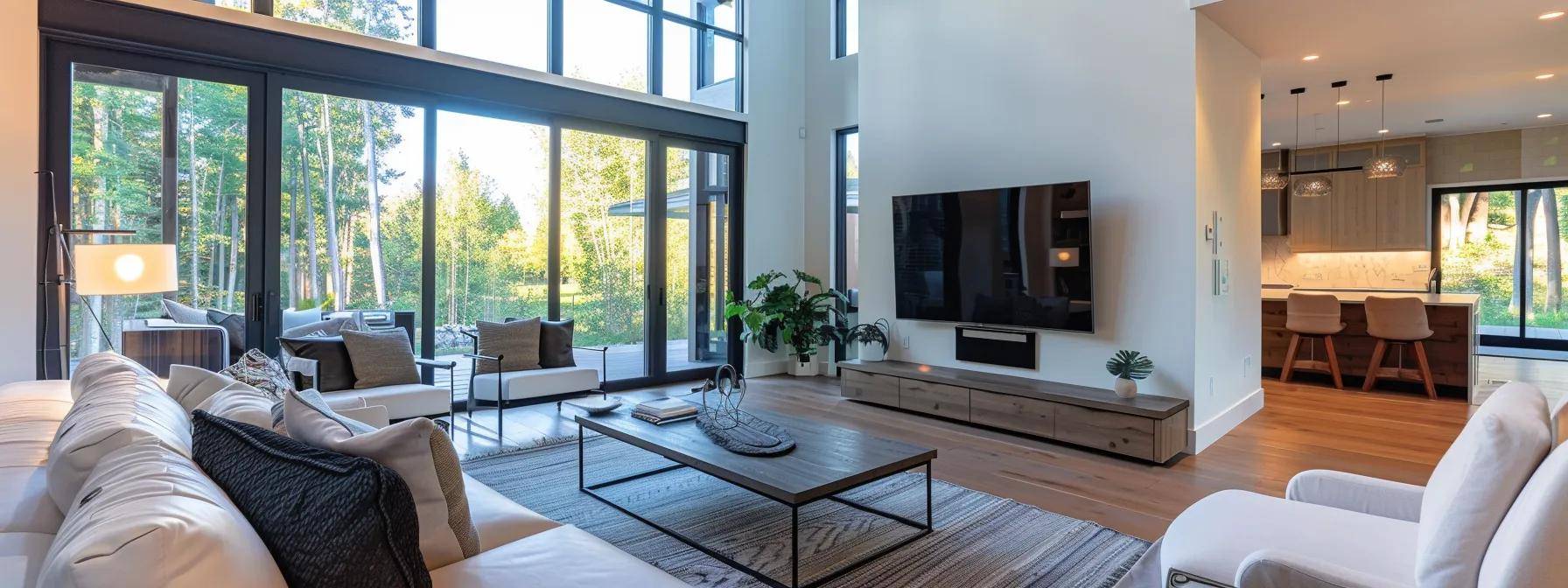
Window replacement costs in Massachusetts vary widely based on factors such as window style, materials, installation complexity, contractor reputation, and any additional upgrades required for efficiency. Homeowners are advised to obtain multiple estimates and consider both upfront costs and long-term savings. Financing is typically available through options that help spread expenses over time.
How Is the Cost of Window Replacement Calculated?
Window replacement costs are calculated based on several factors, including the number of windows, chosen style, and materials. Vinyl windows are generally less expensive than wood or fiberglass. Installation costs depend on the complexity of the job, including the removal of old windows, structural repairs, and proper sealing. Other cost factors include:
- Window Type and Size – Customization Factors: Larger, more complex designs such as bay or bow windows require more labor and specialized techniques, increasing the cost.
- Material Quality – Durability and Energy Efficiency: Premium materials, such as low-E coated glass or triple-pane windows, offer enhanced energy performance but include a higher price premium.
- Labor and Installation Complexity – Professional Expertise: The skill and experience of the installation team affect labor costs. Complex installations that require additional structural repair add to the overall budget.
- Regional Variations in Pricing – Local Market Demand: Prices vary based on local market conditions; urban areas might see elevated prices compared to suburban regions.
- Permitting and Inspection Fees – Regulatory Compliance: Local permits and inspections add modest fees to the overall cost.
What Financing Plans Are Available for Massachusetts Homeowners?
Many contractors and lenders offer financing options such as low-interest loans, home equity lines of credit (HELOCs), or contractor-provided financing. Some programs offer promotional deals like no-interest periods or deferred payments, making it easier to upgrade windows while enjoying immediate energy savings. Additionally, state and local initiatives, such as rebates and tax credits from programs like Mass Save, further reduce the net cost for homeowners.
How Can Homeowners Get Accurate Window Replacement Estimates?
Accurate estimates are best obtained by inviting certified professionals for an on-site evaluation. Contractors will measure existing openings, inspect conditions, and note any necessary repairs. Comparing multiple quotes helps homeowners evaluate prices, service packages, and warranty options. Detailed proposals should break down costs for materials, labor, disposal of old windows, and any additional services, ensuring there are no hidden charges.
Below is an illustrative table summarizing typical cost components and financing options for window replacement in Massachusetts:
| Cost Component | Breakdown Details | Typical Cost Range | Financing Options |
|---|---|---|---|
| Material Costs | Window type, size, glazing options | $300 – $1,200 per window | Contractor financing, cash rebates |
| Labor and Installation | Removal, installation, sealing | $200 – $800 per window | Home improvement loans, HELOCs |
| Permitting and Inspection | Local permit fees, inspection charges | $50 – $150 per window | Local government rebates (Mass Save) |
| Additional Repairs | Structural repairs or insulation upgrades | $100 – $500 per window | Low-interest personal loans |
| Total Project Investment | Combined materials, labor, extras | $700 – $2,500 per window | Deferred payment plans, seasonal financing |
This table helps homeowners visualize expense categories and explore financing avenues that can ease the financial burden. Long-term savings on energy bills and increased home value often offset the initial costs, making window replacement a worthwhile investment.
How Can Homeowners Choose the Right Window Replacement Contractor in Massachusetts?
Choosing the right contractor is critical for any home improvement project, including window replacement. In Massachusetts, where building codes and weather conditions present unique challenges, selecting a qualified, reputable contractor ensures that the installation is performed correctly, safely, and to the highest standards. Homeowners should conduct thorough research, gather multiple quotes, and verify credentials before deciding.
What Qualifications Should You Look for in a Window Installer?
Look for qualifications such as proper certifications, licensing, and a proven track record of successful installations. Reputable installers often possess certifications from national associations like the National Fenestration Rating Council (NFRC) or ENERGY STAR and maintain current licenses in Massachusetts. Experience with various window materials—vinyl, wood, fiberglass, or aluminum—is essential. Accreditation, customer testimonials, and documented past projects highlight an installer’s capability. Homeowners should ask for references, review project portfolios, and check online reviews to validate the contractor’s reputation. In addition, details on warranty and post-installation support services indicate a contractor’s long-term commitment to customer satisfaction.
How Do Customer Reviews and Testimonials Influence Contractor Choice?
Customer reviews provide an external perspective on a contractor’s reliability and workmanship. Platforms like Google, Angie’s List, and the Better Business Bureau offer insights into punctuality, communication, disruption minimization, and finished quality. Positive reviews that detail reductions in energy bills or smooth project execution build confidence, while negative reviews regarding delays or poor workmanship serve as warnings.
What Questions Should You Ask Before Hiring a Window Replacement Company?
Before hiring a contractor, homeowners should ask detailed questions to clarify all project aspects. Essential inquiries include:
- What is your experience with window replacement in Massachusetts? Establishes the contractor’s familiarity with local codes and weather challenges.
- Can you provide references from recent projects? Validates work quality and customer service through direct feedback.
- What warranties and post-installation support do you offer? Clarifies the coverage period and scope of aftercare.
- Will you secure all necessary permits and inspections? Ensures the contractor manages regulatory aspects.
- What is the estimated timeline for the project? Helps homeowners plan and minimizes inconvenience.
- Can you help with financing options or rebates? Inquire about assistance with available incentives.
- Do you provide a detailed, written estimate? A written estimate that includes all cost components avoids unexpected charges.
Below is an example table summarizing key qualifications and questions for window replacement contractors:
| Qualification/Question | Importance | Expected Response/Verification Method | Notes |
|---|---|---|---|
| License and Certifications | Ensures legal and professional standards | Provide state license numbers and NFRC/ENERGY STAR certificates | Verify via online databases |
| Experience in Massachusetts | Familiarity with local codes and weather | Examples of past projects in Massachusetts | Request project portfolios |
| Warranties Offered | Long-term protection for homeowners | Detailed warranty documents covering materials and labor | Compare warranty lengths |
| Permitting and Inspection Management | Compliance with local building codes | Confirmation that permits will be obtained | Check contractor’s previous reviews |
| Detailed Written Estimate | Clarity on cost and services | Comprehensive, itemized estimate | Ensure it covers materials, labor, permits |
| References/Testimonials | Third-party validation of work quality | Contact details of recent customers | Read online reviews and ratings |
| Financing and Incentive Assistance | Helps manage cost and maximize savings | Information on available financing options and rebates | Look for additional customer benefits |
This checklist aids homeowners in systematically evaluating window replacement contractors and ensures their chosen contractor meets expectations and requirements.
Frequently Asked Questions
Q: What factors make window replacement a worthwhile home improvement project in Massachusetts? A: Window replacement enhances energy efficiency by reducing drafts and heat loss, thereby lowering utility bills. It also improves home appearance and value while ensuring compliance with local building codes. High-performance windows with features such as low-emissivity coatings, double or triple glazing, and thermally broken frames contribute significantly to both comfort and long-term savings.
Q: How long does the entire window replacement process typically take? A: The process can take anywhere from a few days to over a week, depending on the number of windows, installation complexity, required structural repairs, and permitting procedures. Most projects follow a timeline from professional assessment to final inspection, ensuring efficient completion while maintaining quality.
Q: Are there any state programs or rebates available to offset window replacement costs? A: Yes, Massachusetts offers incentives through programs like Mass Save, which provides rebates and tax credits for installing energy-efficient windows. Homeowners should check with local utility companies and state programs to determine eligibility, as these incentives help reduce the upfront cost and provide long-term savings on energy bills.
Q: What types of window materials offer the best energy efficiency for Massachusetts climates? A: Vinyl and fiberglass windows are highly recommended because they offer excellent insulation and require minimal maintenance. While wood windows provide a traditional aesthetic, they require regular upkeep. Energy Star-certified windows with low-E coatings and double or triple glazing typically deliver the best energy performance in cold winters and humid summers.
Q: How do I verify that my chosen installer is qualified and reputable? A: Verify a contractor’s qualifications by checking for valid state licenses, industry certifications (such as NFRC or ENERGY STAR), and customer testimonials. Request references, review detailed written estimates, and check online reviews. Ensuring the contractor adheres to local building codes further confirms their capability.
Q: What maintenance practices help prolong the life of new replacement windows? A: Regular inspections, annual cleaning, and prompt repair of issues such as damaged weatherstripping or sealant are crucial. Scheduling periodic professional maintenance checks also ensures windows remain properly sealed, operate smoothly, and continue to meet energy efficiency standards over time.

